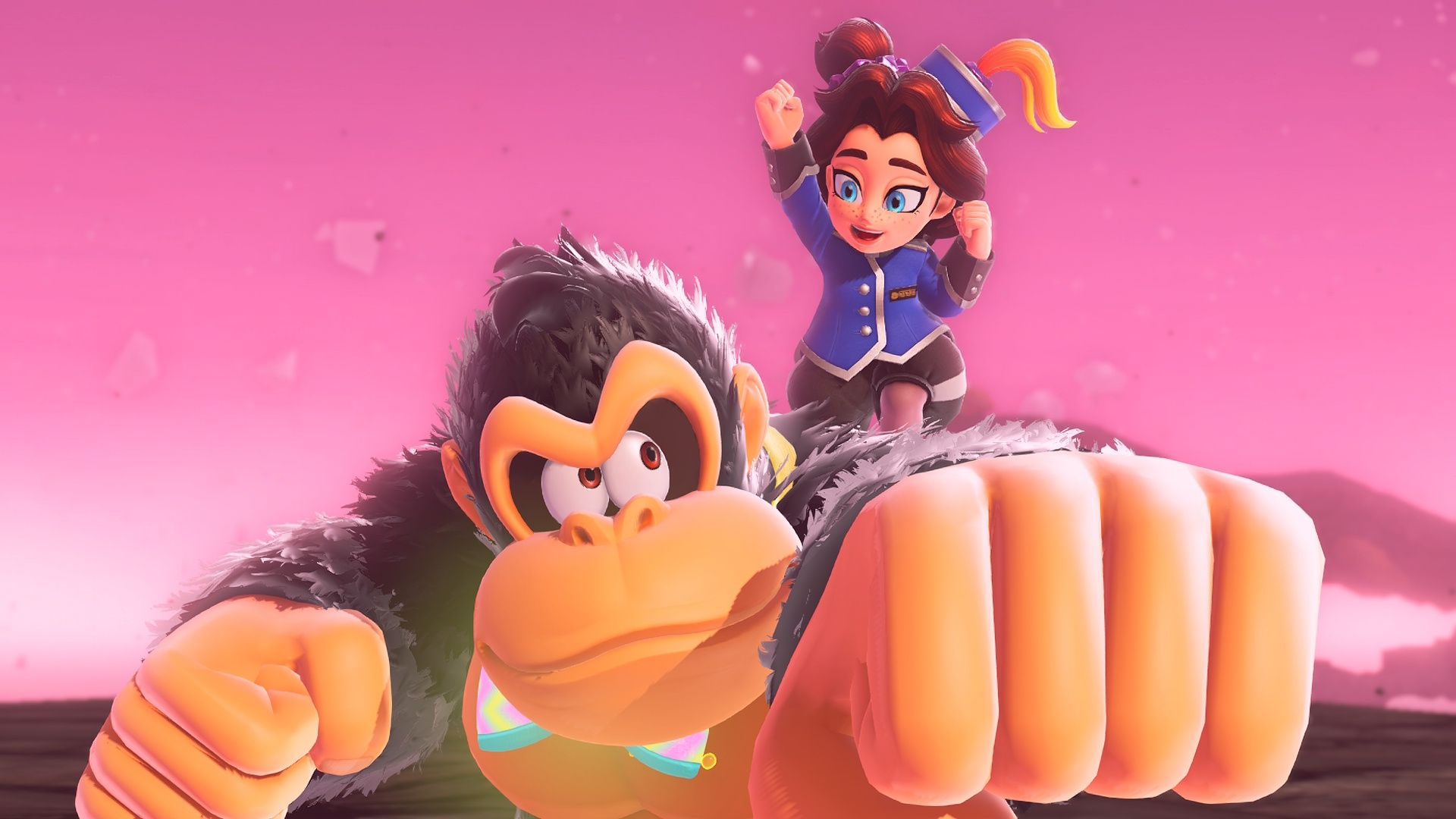Now that Donkey Kong Bananza has been out in the wild for a month, all of our burning questions have been answered. We now know how it connects to Super Mario Odyssey and how it fits in with Donkey Kong lore. The answer to the latter is that it takes a whole lot of liberty with it. All you really need to know is that it technically happens after the Donkey Kong Country games. The details get murky beyond that.
I don’t particularly care about any of that, to be frank. Donkey Kong is not a narrative-driven series so much as an episodic cartoon where the status quo changes with each new adventure. There is no need for consistency, in the same way that I don’t need an explanation as to how Bugs Bunny went from fighting Nazis in World War 2 to playing basketball with LeBron James in the Metaverse. (No, really, don’t explain it to me.)
Even with that attitude, there’s one piece of Donkey Kong lore that I’m a little disappointed that Bananza doesn’t respect. I am, of course, talking about Donkey Kong Goes Home, a long-forgotten children’s music album that invented a backstory for the original arcade game.
Recorded and released in 1983, Donkey Kong Goes Home was the product of Kid Stuff Records. The record label earned a reputation in the 1980s for adapting popular IP, both from cartoon and video games, into vinyl records featuring original songs. If you have some distant childhood memory of listening to someone croon about kissing on a Pac-Man Christmas album, that was Kid Stuff. As you can surmise from that, a lot of companies didn’t really care what the record label did with their characters once they gave over the rights. It was the wild west for licensed content, and Donkey Kong Goes Home is the product of that.
So, what exactly does the album tell us about Donkey Kong that Bananza rejects? According to the album’s narrator, Donkey Kong grew up in the city of Gamesville. He lived in a zoo that was across the street from Mario’s pizza parlour. At some point, the zoo was shut down and all the animals in it, including DK, were sold to the circus. Now, the animals get d through Gamesville once a year whenever that circus comes to town.
Are you with me so far? Great, because this next part is important.
When DK still lived in the zoo, Mario and his delivery girl used to visit him frequently and bring him food. And who was that delivery girl? Pauline. That’s right: DK did not meet Pauline when she was trapped in a rock. She was sneaking that ape pepperoni slices through his prison bars.
Long story short, Donkey Kong gets homesick on one of his trips through Gamesville and breaks out of his cage in an attempt to return to his zoo. Unfortunately, they paved paradise and put up a construction site. At the same time this is happening, Mario sends Pauline to deliver a Super Duper Pizza to iconic Mario character (checks notes) Jake the Watchman. DK crosses paths with Pauline and, delighted to see his old friend, takes her to the top of the construction site. Mario has to save the day in what amounts to a big misunderstanding from a playful ape who is just trying to relive his childhood. The whole thing ends in a grand duet where two singers list out some food orders and proclaim that Mario will just bring you whatever you want, like an Italian Uber Eats.
Why am I so invested in some absolutely nonsensical lore created by a bunch of musicians who were given no creative direction? It’s just a wish that the weirder pockets of video game history were as well-preserved as the major moments. You will always be able to play Super Mario Bros. so long as Nintendo is around, but you will likely never get a chance to appreciate Mario’s Game Gallery or I Am a Teacher: Super Mario Sweater. Video game history is often tightly curated by rights holders who want to shed outliers to create a neat, marketable timeline. It’s something we’ve especially seen in Star Wars’ Disney era, as decades worth of oddball spinoffs were booted from canon. The instinct tracks from a business standpoint, but context becomes a casualty of lost media.
Donkey Kong Goes Home is a silly collection of (surprisingly complex) children’s songs, but it has so much to teach us about how Nintendo has evolved over its lifespan. You can see it realize the value of its games in real time, as characters like Donkey Kong and Pauline go from being a licensing afterthought to assets in need of protection. With Donkey Kong Bananza rewriting the duo’s history, Donkey Kong Goes Home recedes further into the ether – taking a crucial detail of Nintendo’s past with it. It’s not so much about keeping lore consistent as it is acknowledging the weird twists and turns that our most storied video game heroes have taken.
At the very least, I’d just love to hear Pauline sing “a cheese and sausage, peppercini on the side” in a DLC. That feels like a fair compromise.











